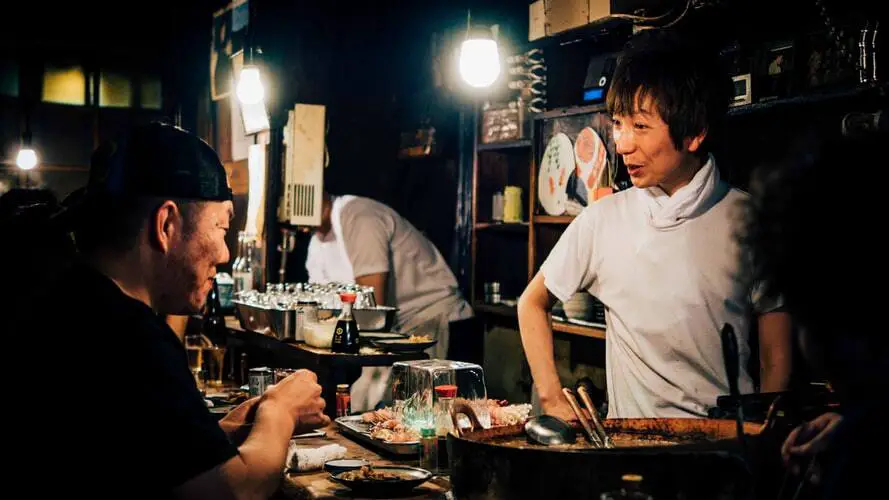This article will give you all of the knowledge you need on the Japanese word ojisan, including its Japanese definition and translation, example sentences, and more!
Contents
What does ojisan mean?
Ojisan (叔父さん、おじさん) means middle-aged man in Japanese. It typically refers to men in their 40s to 50s, but there is no precise definition.
The original meaning of ojisan is uncle so Japanese people use it for family members too.

Is ojisan a rude word?
In its original meaning, ojisan is not rude when used for family members. However, most men would not be especially happy to be called an ojisan by someone they don’t know. Guys generally want to feel young!
In reality though, Japanese people do use this word when talking about random strangers in the third person. Overall, I would say it is mildly impolite rather than super rude.
So what should you use instead?
When addressing someone directly, it’s better to simply use their name if you know it. If they are older than you, add san (さん) to their name to make it more polite.
If you don’t know the person’s name then just omit the “you” from the sentence. Unlike English, Japanese does not require it.
That said, if you’re talking about a random guy you saw today who is out of earshot then fire away. Ojisan is quite a convenient word for these situations!
Example sentences
Below, we take a look at some examples of how to use ojisan in Japanese.
To make it easier for you, I have written each sentence in full Japanese kanji in the first line, followed by roman letters (romaji), and hiragana, with the English meaning coming last.
おじさんは何歳なの?
Ojisan wa nansai na no?
おじさんはなんさいなの?
How old is your uncle?
今日は電車で面白いおじさんと話した。
Kyou wa densha de omoshiroi ojisan to hanashita.
きょうはおもしろいおじさんとはなした。
I spoke to a funny (older) man today on the train.
この間、あのバーに飲みに行ったけど、酔っぱらったおじさんばっかりで全然楽しくなかった!
Kono aida, ano baa ni nomi ni itta kedo, yopparatta ojisan bakkari de zenzen tanoshikunakatta!
このあいだ、あのばにのみにいったけど、よっぱらったおじさんばっかりでぜんぜんたのしくなかった!
I went to drink at that bar recently, but it was full of drunk middle-aged guys. I didn’t have fun at all!
When used for yourself, ojisan can take on the meaning of being too old or past it.
若い時はモテたけど、もうおじさんになっちゃった!
Wakai toki wa moteta kedo, mou ojisan ni nacchatta!
わかいときはモテたけど、もうおじさんになっちゃった!
I used to be popular with girls when I was younger, but I’m too old now!
Does ojisan also mean old man?
Japanese learners often confuse ojisan with ojiisan (お爺さん, おじいさん), which instead refers to an old man (i.e 60+) and whose literal meaning is grandfather. The best way to tell the difference between the two is to remember that ojiisan has a longer ‘i’ sound.
What is the female equivalent?
Obasan is used to refer to a middle-aged woman. As you might have guessed, it literally means aunt in Japanese.
- Discover the Best Things to Do near to Tokyo station: A Guide to Tokyo’s bustling center - January 15, 2023
- Maximize your JAL Mileage Bank (JMB) Miles: A Complete Guide on Earning, Redeeming, and Hacks - January 15, 2023
- Discover the Best Things to Do in Harajuku: A Guide to Tokyo’s Trendiest Neighborhood - January 15, 2023